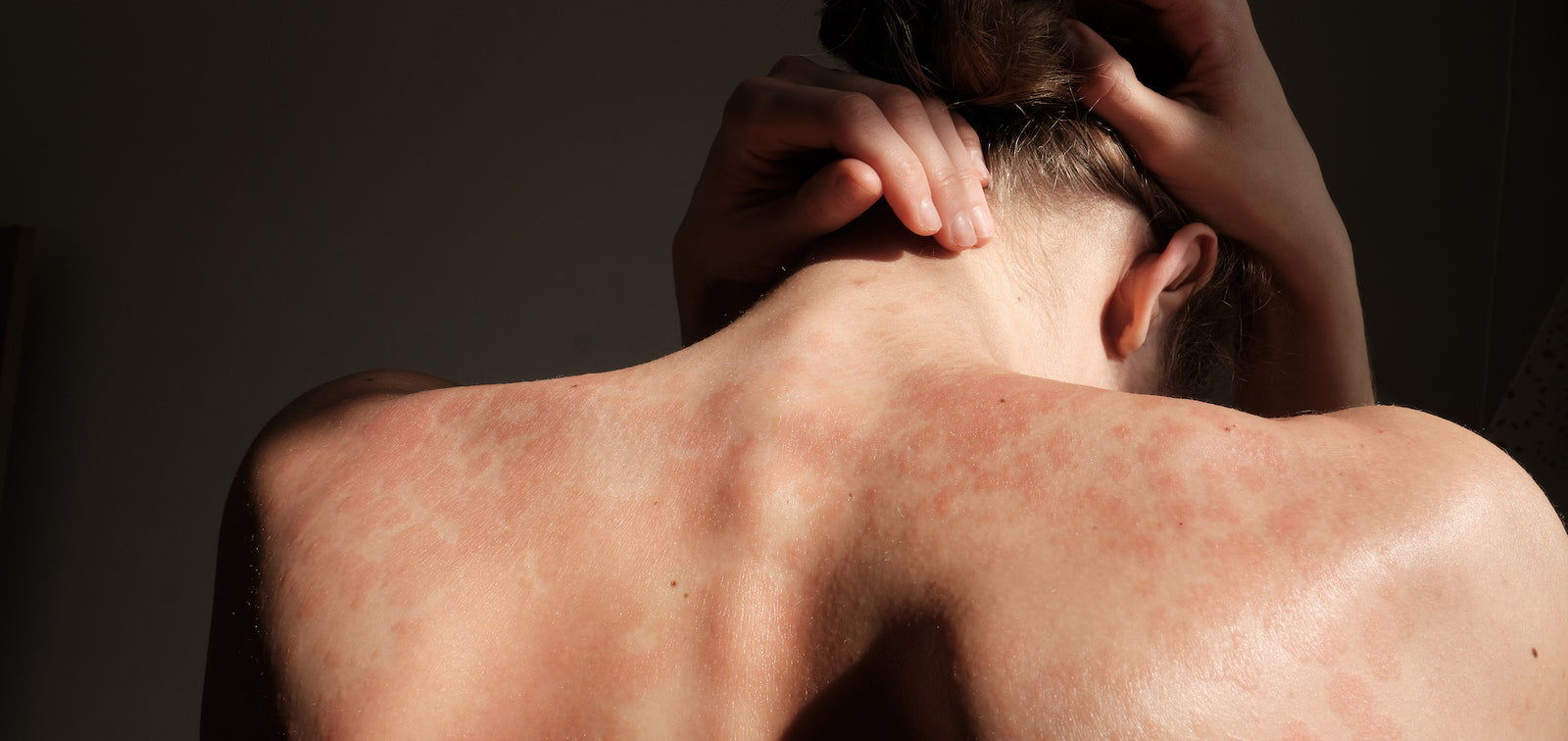As common as psoriasis is, many people dealing with this condition struggle to find effective solutions for minimizing symptoms. Without proper treatment, psoriasis can leave the skin feeling uncomfortably dry, itchy, and aggravated.
While medical treatments are often necessary to keep this condition under control, natural solutions can help ease minor symptoms and reduce the risk of flare ups. In order to help you effectively tackle the condition, we’ve created the ultimate guide to the top 10 home remedies for psoriasis.
What Causes Psoriasis?
While there’s still a lot that is unknown about psoriasis, scientists have uncovered that it is tied to dysfunction in the immune system that causes cells to overproduce. These excess cells pile onto the skin, causing rough, scaly patches. Psoriasis symptoms can show up anywhere on the body, including the knees, elbows, face, scalp, and even the nails.
Of course, you should talk to your doctor to determine the best course of action for treating your psoriasis. That said, home remedies can work wonders when used in tandem with medications or other treatments to help keep your skin calm and comfortable.
With that said, here are our recommendations for the top 10 home remedies for psoriasis.
1. Coenzyme Q10
Coenzyme Q10 (or CoQ10) is a gentle skincare ingredient that can be especially helpful for managing psoriasis-prone skin. It works as an antioxidant to protect the skin against free radicals (which can trigger inflammation and worsen psoriasis symptoms), and has powerful anti-inflammatory effects.
Our Coenzyme Q10 Boost Serum is the perfect solution for anyone looking to reduce minor symptoms and minimize the risk of future flare ups. The expertly crafted formula combines CoQ10 with other hydrating and soothing ingredients to help you maintain calm and healthy skin, including vitamin E, hyaluronic acid, and green tea. It also has a clean formula that is free of fragrances (which can trigger flare ups). This daily serum can safely be used on the face, neck, chest, or anywhere else you may experience symptoms.
2. Olive Oil
Here’s a psoriasis natural remedy that you likely already have in your kitchen! Vitamin E and fatty acid-rich olive oil has anti-inflammatory properties, making it an excellent choice for calming aggravated skin. Additionally, olive oil is a powerful moisturizer that can help treat rough patches for softer, more comfortable skin. You can massage some oil directly onto affected skin, or add a couple tablespoons to your bath.
3. Aloe Vera
Aloe vera is one of the top home remedies for soothing irritated skin, so it’s no wonder it is such a great choice for dealing with psoriasis. This anti-inflammatory ingredient not only reduces signs of irritation, but also acts as a light moisturizer. Before applying aloe vera, be sure you’re using a formula that is fragrance-free to avoid further aggravation.
4. Tea Tree Oil
Tea tree oil is yet another natural anti-inflammatory ingredient that can be great for reducing psoriasis symptoms. It’s important to dilute tea tree oil prior to applying it to the skin, as it can further aggravate the skin when used undiluted. Mix 1 part tea tree oil with 10 parts of a carrier oil (like olive oil or coconut oil), and then apply the mixture to the skin. Those that deal with psoriasis on the scalp can also add a few drops to their shampoo.
5. Capsaicin
Capsaicin may not be quite as well known as the other ingredients on this list, but it’s one of the most effective natural remedies for psoriasis. Interestingly enough, it’s the compound in red peppers that gives them their spiciness. However, when applied to the skin, it can help minimize inflammation and redness. You can find capsaicin creams at your local drugstore.
6. Oats
Oats have long been touted for their impressive ability to soothe the skin. Oats soften the skin and can reduce irritation, and are particularly great for tackling itchiness to improve comfort.
There are plenty of ways you can use oats to treat psoriasis symptoms. One popular way is to add about half a cup of oats to your bath for a gentle head-to-toe treatment. If you’re looking for a more targeted treatment, create a paste by mixing oats with a small amount of water, and then apply it to the affected area. Be sure to leave it on for at least 10 minutes.
7. Baking Soda
Another popular remedy that most people already have in their pantry is baking soda. Many with psoriasis claim that the household item is great for tackling itchiness from active flare ups. It works particularly well when targeting a smaller area in need of relief.
All you need to do is mix about a teaspoon of baking soda with a bit of water to make a spreadable paste. Apply it to the affected area, and then let it work for about 15 minutes before washing it off. Keep in mind that baking soda can dry the skin, so be sure to follow up with a rich cream to restore moisture levels.
8. Apple Cider Vinegar
Another great treatment for itchiness related to psoriasis is apple cider vinegar. Before applying it to the skin, be sure to dilute it by mixing one part of apple cider vinegar with two parts of water. You can then apply the solution to the skin with a cotton pad, and then leave it on for up to 10 minutes before rinsing it off. Much like baking soda, it can be a bit drying, so make sure to apply a moisturizer after washing it off.
9. Oregon Grape (Mahonia Aquifolium)
This anti-inflammatory and antimicrobial herb has been shown to be an effective natural solution for reducing multiple symptoms of psoriasis, especially for those dealing with mild to moderate psoriasis. While you probably don’t have this herb sitting in your spice rack, you can find Oregon grape creams at your local drugstore.
10. Sunlight
Last but not least is a completely free remedy: sunlight! A little exposure to UVB rays can help slow the growth of cells that are causing psoriasis symptoms. It’s still essential to wear sunscreen when out in the sun to protect the skin and prevent sunburn. You should also take extra precautions if you’re taking medications that make you more sensitive to UV rays.






